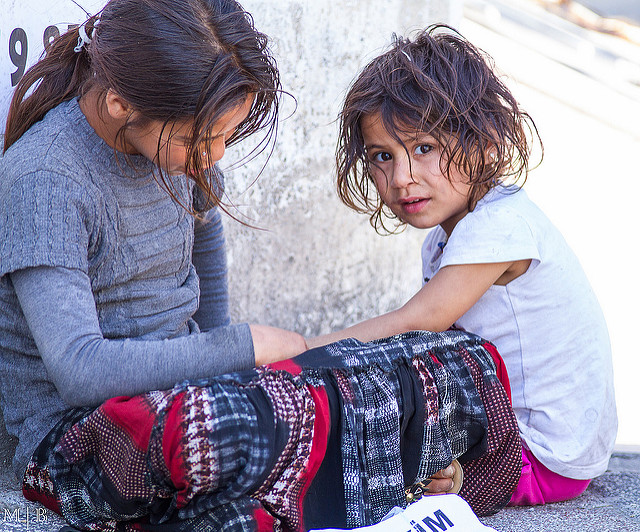How Pearson Engages Employees for Education in Emergencies

Photo by Mehmet Bilgin.
This year on World Refugee Day, people across the world are calling on the international community to stand #WithRefugees. With almost 65.3 million forcibly displaced and 21.3 million refugees (half of whom are children), the world is currently experiencing the greatest refugee crisis since WWII. For these children, education can serve as a life-saving intervention, protecting them from harmful alternatives such as child labor, early forced marriage, and recruitment into armed groups and extremist organizations and provide them with the knowledge and skills that they need to realize their full potential as productive citizens. However, too many of these refugee children are excluded from the immense benefits an education can bring. Right now, 75 million children around the globe have had their education affected by crisis, 37 million forced out of school.
Employee engagement initiatives are a great way for companies to invest in education in emergencies, as the private sector can play a critical role in developing innovative education solutions for children living in conflict and emergency settings. Incorporating employee engagement components into investments gives employees an active way to help those affected by conflict and crisis and promotes engagement, loyalty, and deeper commitment to the company.
Pearson’s Employee Engagement
Pearson, a founding member of the Global Business Coalition for Education, has been a leader in engaging its employees in the Syrian refugee crisis. Not only is Pearson investing in education in emergencies through their “Every Child Learning” partnership with Save the Children, a three-year partnership to increase educational opportunities for Syrian refugees and host communities in Jordan, they’re also involving their employees in this work.
In the spirit of World Refugee Day, Pearson is continuing to stand with refugees. Refugee support must start at home, so Pearson has created numerous programs to engage employees in refugee issues. In the past year alone, they have implemented multiple initiatives to increase employee awareness of refugee issues, as well as matched employee donations 4:1 and created ways for employees to get directly involved in helping refugee children.
For example, Pearson has worked to create opportunities for employee action and volunteering to help refugees close to home. In conjunction with their work for their “Every Child Learning” partnership, Pearson held an advocacy activity for their employees during the 2015 Christmas season in order to raise awareness of the urgency around improving education for children affected by conflict. Through this activity, Pearson donated 7,000 Penguin Readers to help unaccompanied child refugees arriving in the United Kingdom learn English and access education. As part of this event, Pearson employee volunteers based in London inserted welcome messages into the books from the UK public, engaging directly and personally to help local refugees.
Pearson has also worked to increase awareness and educate employees about the issue of education in emergencies and about Pearson’s own initiatives to help refugee children. Last year, Pearson held an unplugged Q&A session for their London-based employees on their “Every Child Learning” partnership with Save the Children, co-hosted by representatives from both organizations. Pearson employees had the chance to learn about the partnership itself and about why the company feels so strongly about supporting education for children living through conflict.
To increase employees’ knowledge of the plight of refugee children, Pearson also hosted an exclusive film screening of Save the Children’s new film “This is Exile: Diaries of Child Refugees,” which depicts the struggles of Syrian children fleeing to Lebanon. This past May, Pearson employees were invited to attend Save the Children’s “Forced to Flee” immersive event in London, which brought to life the stories of children who have been driven from their homes and deprived of education by violence and war.
John Fallon, CEO of Pearson, has explained that employees “don’t just want [companies] to be involved in situations like this, they expect us to be involved and they want to be involved themselves as well.” World Refugee Day calls on everyone to stand #WithRefugees, and employee engagement projects are an excellent opportunity for companies to invest in education for children living through crisis and conflict.
To learn more about six ways companies can engage their employees in education in emergencies, see our brief.
